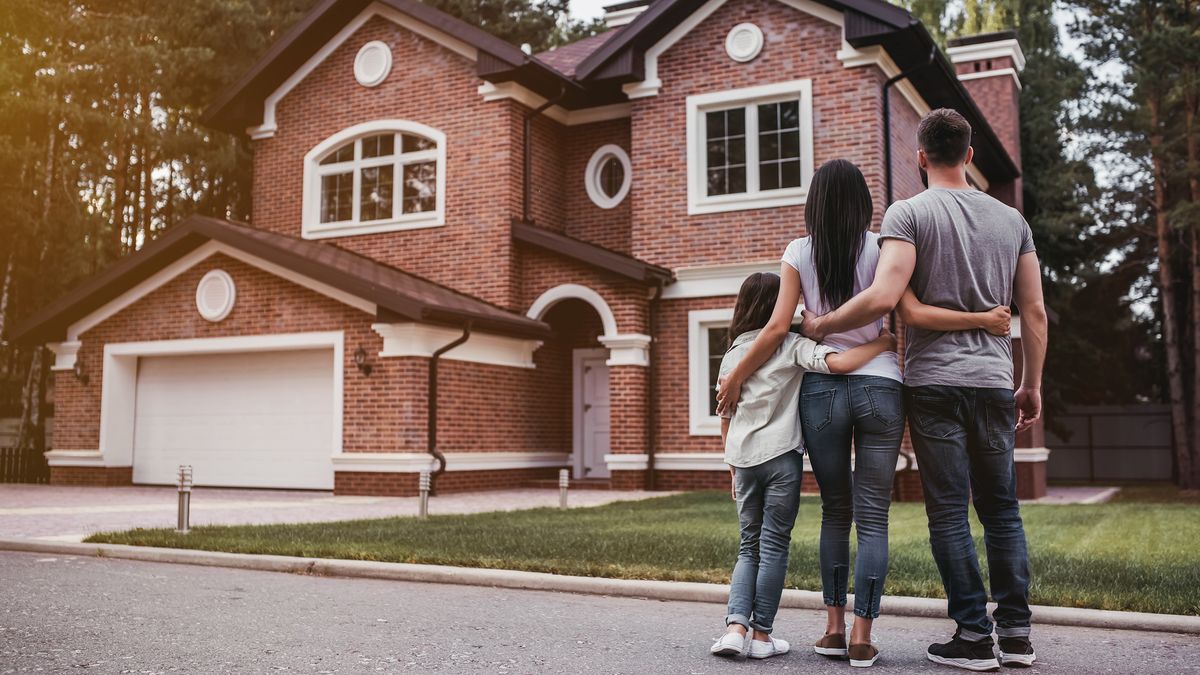How to Make 2023 the Year You Buy Your Dream Home

Over the past few years, we’ve all spent a lot of time in our homes. And if you count yourself among those who began visualizing living somewhere new, you’re not alone: In a recent Northwestern Mutual survey, 27 percent of those surveyed cited “buying their dream home” as a near-term life goal.
Of people who plan to make a major life change cited buying their dream home as a near-term goal.
It’s understandable, however, if recent headlines about today’s housing market over the past year — from record high prices and low inventory to rapidly rising interest rates — have given you pause. But there are always myriad factors to consider when you’re buying a home — and though today’s interest rates may seem high, historically, they’re still relatively low.
So if buying your dream home tops your list of goals for 2023, answering the questions below can help you get started on making it a reality.
How much dream home can I afford?
The first step in is to determine how much mortgage you can truly afford. This can be trickier than it sounds as that can often be different than how much you qualify for. Your dream home won’t be all that dreamy if you end up “house poor” — that is, having a mortgage payment so high that you can’t buy furnishings or take the occasional vacation.
Talk to a lender and have them run some numbers before you start shopping. This will give you a clear picture of how much your monthly payment will be, based on your down payment. Make sure your lender factors in taxes, insurance and all the fees you might not have thought of beyond the purchase price. A financial advisor can also help you look at how your monthly payment fits in with your overall financial plan and whether you’d still be on track for your goal or might have to make some adjustments.
What kind of mortgage should I get?
While you’re meeting with your mortgage professional, talk through all the different options for your loan to find one that’s right your particular scenario. For example, monthly payments for a fixed-rate loan will stay the same until you pay the loan off. If you expect to stay in your home for a long time and don’t plan to refinance, a fixed-rate loan can be a good option; the most popular lengths are 15 and 30 years.
Another option to consider, particularly with today’s higher interest rates, is an adjustable-rate mortgage (ARM) loan. ARMs typically offer a lower initial rate than a fixed-rate loan and, therefore, a lower payment. ARMs usually have a length of time over which payments won’t change (maybe five or 10 years). After that initial period, your payments could increase if interest rates continue to rise, but eventually, those rates could pull back to your advantage. For most consumers, ARMs make sense when you plan to refinance or sell your home prior to the chance of rates adjusting, but this is a good topic to discuss this with a lender.
You may also want to ask your lender if it makes sense to pay mortgage points to lower your interest rate. And before you start actively house hunting, it’s a good idea to get a pre-approval letter from a lender, which shows sellers that you’re a qualified buyer.
Related Article
What additional costs should I budget for?
Once you have your down payment and your first month’s payment, you’re ready to buy your dream home, right? Well, not so fast. There are a variety of out-of-pocket costs that come with buying a home — between a home inspection, closing costs and mortgage points, you could easily owe thousands of additional dollars at closing. It’s also a good idea to add home maintenance costs to your monthly budget. Talk with your mortgage lender about all the expenses you should be prepared to cover.
Should I use a real estate agent?
While agents do work on commission, the seller pays it. Plus, it’s not a bad idea to have a professional who is negotiating on your behalf, especially since you won’t be paying them out of your own pocket.
A buyer’s agent who knows the market inside and out can be an invaluable ally in helping you scope out neighborhoods and houses that have the features most important to you. You can rely on their experience to point out flaws that might be deal breakers and help you negotiate a reasonable purchase price based on “fair market value.”
With the housing situation changing so rapidly, it’s particularly vital right now to work with an agent who has their finger on the pulse of the market and can help you determine whether a home is priced unrealistically for the current circumstances. A knowledgeable agent can help you make the right offer.
What should I look for in a dream home?
While a real estate agent can help you winnow down your list of “wants” to focus in on “needs,” you should still take the time to visit any neighborhood you’re considering so you can see the condition of the house and other homes in the area.
You’ll want to make sure your home is in a good school district (even if you don’t have kids, this will affect the eventual resale price), and make sure it has the amenities you want and need such as parks, retail offerings and a manageable commute.
Even if you enjoy DIY projects, if your dream home needs repairs, you need to calculate the costs involved. You don’t need to waste time worrying about that tacky wallpaper, but big-ticket items, such as a sagging roof, a cracked foundation, outdated electrical systems or mold, should be deal breakers.
No matter what shifts happen in the housing market, working with a real estate agent and a financial advisor can help you create the best plan to get you moved into the home you’ve been dreaming about.






